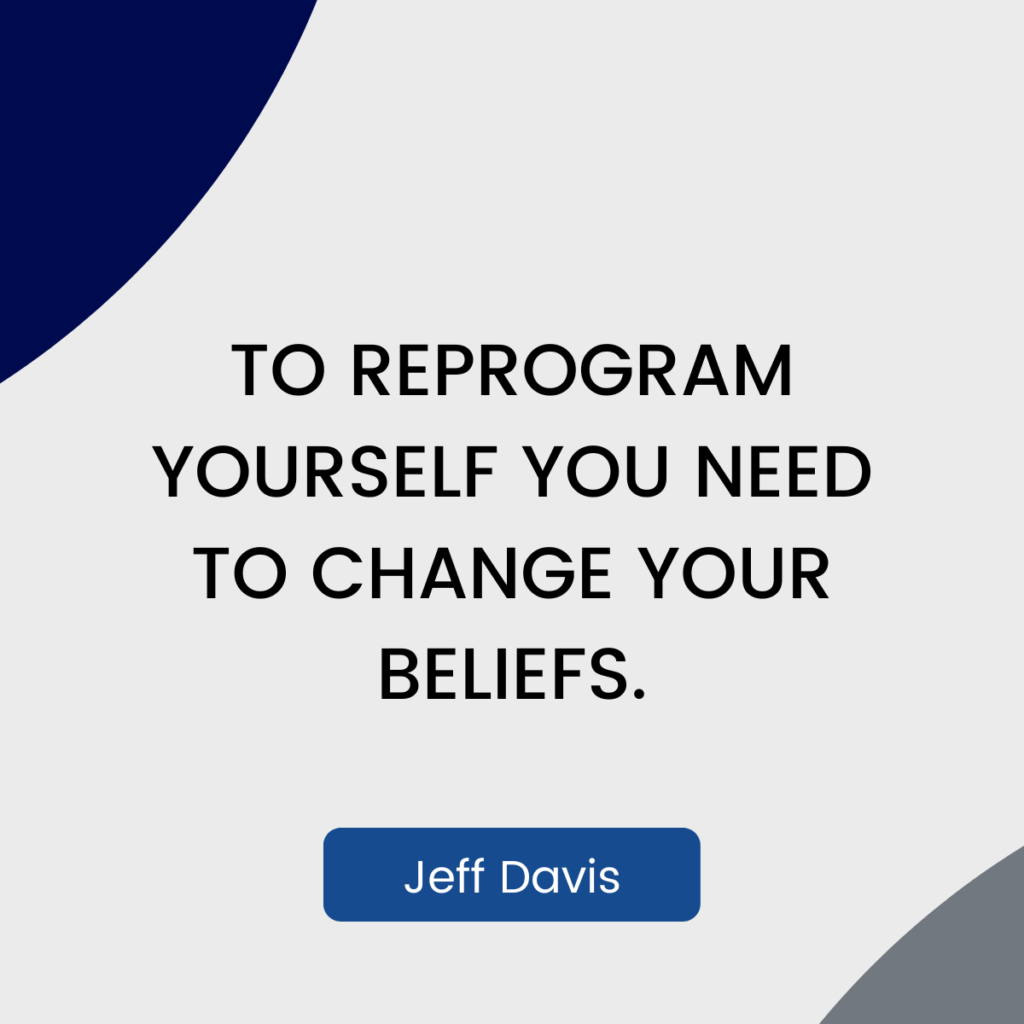
For my international bestselling book, The Power of Authentic Leadership, I interviewed people at the top of their industry – the number one blogger, the number one podcaster, the number one entrepreneur (a successful billionaire), etc.
I couldn’t believe the responses.
I was expecting them to talk about how they took huge risks to get to where they are. While calculated risks are important, pretty much everyone I talked to said it’s NOT about jumping off the cliff and growing your entrepreneurial wings on the way down.
Make Small, Incremental Changes
They talked about the importance of small, incremental changes as you work toward the life of your dreams. They also talked about the importance of having a job while growing your business.
These are people who are leading their respective industries, and they emphasized the mindset of being smart and steady.
For someone like me – who in the past has risked it all multiple times and fallen flat on my face – this was enlightening.
Before I interviewed these experts who are considered by many to be number one in the world, I had the idea that entrepreneurship was about constantly taking wild risks. This was due to all those ridiculous memes on Instagram where people glorify the entrepreneurial life, without talking about all the hard work that goes into making your dreams a reality.
One author I interviewed, who has written more than fifty books, said he did take a massive financial risk to make his dreams come true, but he wouldn’t recommend this approach to others.
The common theme was clear: taking a well-reasoned, calculated risk is great. But taking an over-the-top, unreasonable risk is not recommended. The people I interviewed at length also talked about the value of having a job – which was great to hear, as there are so many entrepreneurs out there selling their unqualified programs who make it seem like having a job is a bad thing.
Directly Connecting With the World’s Top Influencers
I cut through all the nonsense and all the frauds and I went straight to the top, directly connecting with people who were winning big by being fully themselves, caring about other people, and maintaining their integrity during challenging situations.
It’s not about changing everything at once. It comes down to making those small, tiny daily changes while you’re being responsible and paying the bills.
There is sometimes value in taking massive, life-affirming risks. And it is true that now and then, with this approach you’ll strike gold. With that said, there’s another way to The Mountaintop – a steady, practical way.
Take fifteen to thirty minutes today to start working on your passion project. Focus on building habits around your desired lifestyle. And instead of changing everything at once, make small, incremental changes as you move forward to your own version of success.
Slow and steady wins the race.
Slow and Steady Wins the Race
Now that we’ve established a foundation as far as why being slow and steady is important, let’s talk about how we got about doing it:
- Simplify: Keep your life clean and simple. As I talked about in my TEDx talk, How To Fulfill Your Inner Life, your outer life is a reflection of your inner life. Are you keeping your desk clean, both in the office and at home? Are you actively reflecting in a journal to process life’s experiences? Are you taking time to yourself each week to rest, relax, and recharge? This is all part of simplifying your life. While there’s nothing wrong with having multiple plates spinning at the same time, sometimes less is more. When you focusing on simplifying and writing down your thoughts and to dos, life becomes slower and simpler.
- Patience: This is something I have a hard time with! I’m better at it than I used to be, but I still find myself being impatient. Patience does not mean you sit around doing nothing. Be sure to take action and plant those seeds. Being patient means planting those seeds and then detaching from the results. It means finding balance in your schedule each day. Patience is where the journey merges with the destination, effort is a virtue, and the fruits of your labor are not the main concern. If your results are fantastic, great! If not, no worries! Regardless of your results, keep going. You are already a success for making the effort and putting yourself out there. Be kind to yourself and take note of how far you’ve already come.
- Work-life balance (and avoiding burnout): Piggybacking off of the previous bullet point, it’s crucial to maintain work-life balance. Some people treat work-life balance as a joke (and I used to do this as well), but the truth is that maintaining a balanced schedule will keep you from burning out. The statistics here are mind-blowing: according to Deloitte, 77% of people have experienced burnout in their current job, and 51% more than once. I unexpectedly experienced a brutal burnout back in 2020 and let me tell you, it’s no joke. Slow and steady is more than a figure of speech – it’s a mindset, lifestyle, and way of being. Prioritize your wellbeing through work-life balance. Work hard and then know when to shut off.
- Mindset and Belief: Mindset is something I talked about at length in my award-winning book, Reach Your Mountaintop. The right mindset is about getting the right inner programming, foundation, and framework in place. You may resonate with all of these tips, and yet still have an ingrained mindset of “rush and hurry”. I’m speaking to myself here as much as anyone else, as I’ve been “rushing” for most of my life due to my trauma. While this is not a post about how to heal from trauma, I encourage you to take a look at both your mindset and the “programs”, “operating systems”, and “beliefs” inside yourself that create your mindset. This deep inner work allows you to reprogram yourself and slow down at both a conscious and unconscious level. You can use tools like mindfulness, meditation, and/or prayer to help get you there.
- Habits: This is a tip I picked up from my phone chat with bestselling author Jeff Goins. I asked him the secret to his greatness. He said he stepped away from being caught up with “goals” and instead established daily habits. While I wholeheartedly agree with success expert Brian Tracy that setting goals is important, it’s crucial to turn your vision into daily behavior that gets you there. I resonate with this, as in my own experience, I find when I get too caught up in the end destination, I don’t take the actions necessary to get there. But when I hold the goal a bit more “loosely” in my mind by detaching and staying connected to the present moment, that’s when I ironically take the actions necessary to actually get me there. It’s a catch-22 in a way, but also practical. While having big goals is important, the secret gravy is habits and self-discipline. I featured both Goins and Tracy in my book The Power of Authentic Leadership, which I encourage you to read for your benefit. Their combined wisdom is dynamite.
There’s more to discuss here and this is the tip of the iceberg. The purpose with this post is to get the conversation going as you optimize both your professional and private life in a more steady way. The first half of this post was the “why” behind this approach, and the second half of this post was the “how”.
For the record: there’s absolutely nothing wrong with taking those giants steps forward if you have the time and energy. There have been times I’ve been in the flow where I’ve written for hours on end. And there is sometimes value in unbalancing your life in the short-run to get to where you’d like to be in the long-run. With that said, generally speaking, we’re in it for the long-haul. Instead of having to do everything at once, I’m encouraging you to make small, incremental changes as you work on your passion projects for reasonable amounts of time each day. It’s something you can do while working a job and having other commitments.
I appreciate you reading this post and I look forward to seeing you around in future blog posts. Feel free to leave a comment below with your thoughts and insights. Do you agree with what I said here? In your experience, do these strategies work? I’d love to hear your perspective, as I learn as much from you as you learn from me.

Jeff Davis is an award-winning author, most recently publishing The Power of Authentic Leadership: Activating the 13 Keys to Achieving Prosperity Through Authenticity. Connect with him on LinkedIn and follow him on Twitter. For three free books (The Power of Authentic Leadership, Reach Your Mountaintop, and Traveling Triumphs) in exchange for being added to his email list, email his Executive Assistant at meg@jeffdspeaks.com. Learn more about his story on his About page and feel free to check out his author page on Amazon. Also feel free to contact Jeff directly via jeff@jeffdspeaks.com. What Jeff does best is sharing his life experiences in a way that adds real value to others. Consider bringing him to speak as a mental health, authentic leadership, and/or resiliency expert at your next event.


Leave a Reply